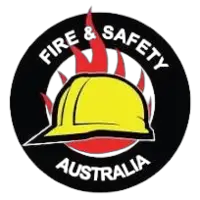
How do I become a Firefighter in New South Wales?
Get qualified to work as a Firefighter with a course recognised across Australia. Speak to a training provider to learn more.
Course providers in New South Wales
The following providers offer Firefighter courses in New South Wales.




















Common questions
In Australia, a full time Firefighter generally earns $1,490 per week ($77,480 annual salary) before tax. This is a median figure for full-time employees and should be considered a guide only. As you gain more experience you can expect a potentially higher salary than people who are new to the industry.
 Courses.com.au Team
Courses.com.au Team
This industry has seen an increase in employment numbers in recent years. There are currently 12,200 people working as a Firefighter in Australia compared to 11,200 five years ago. Firefighters may find work across all regions of Australia.
Source: Australian Government Labour Market Insights
 Courses.com.au Team
Courses.com.au Team
If you’re planning a career as a Firefighter, consider enrolling in a Certificate III in Public Safety (Firefighting and Emergency Operations). This course allows you to specialise in urban fires, wildfires, aviation incidents and isolated structural fires. You’ll also learn about advanced resuscitation, incident scene safety and management, fire suppression techniques and skills for driving operational vehicles. A Certificate II in Public Safety (Firefighting Operations) may also be appropriate.
 Courses.com.au Team
Courses.com.au Team
Related career opportunities
Browse occupations related to Firefighter
Further reading


Careers for people who love the outdoors
14th September 2021
What do social workers do?
11th December 2019All firefighter courses
- HLTAID015 Provide Advanced Resuscitation and Oxygen Therapy
- TLIF2018 Operate Firefighting Equipment
- RIIERR205D Apply Initial Response First Aid
- PUAFIR309 Operate Pumps
- PUAFIR306 Identify, Detect and Monitor Hazardous Materials at an Incident
- SISORSC003 Perform Complex Vertical Rescues
- FWPCOT3326 Recover Four Wheel Drive Vehicle
- PUAEQU001 Prepare, Maintain and Test Response Equipment
- 22575VIC Course in Basic Oxygen Administration for First Aid
- PUAFIR324 Render Hazardous Materials Incidents Safe
- PUAFIR207 Operate Breathing Apparatus Open Circuit
- RIIVEH305F Operate and Maintain a Four Wheel Drive Vehicle
- PUA20719 Certificate II in Public Safety (Firefighting Operations)
- PUACOM005 Foster a Positive Organise Image in the Community
- PUASAR032 Undertake Vertical Rescue
- 22611VIC Course in Awareness of the Australasian Inter-service Incident Management System (AIIMS)
- VU23311 Prepare to Work within the Australasian Inter-service Incident Management System
- PUAOPE019 Control a Level 3 Incident
- PUAOPE015 Conduct Briefings and Debriefings
- MSMWHS216 Operate Breathing Apparatus
- FWPCOT3329 Perform Complex Four Wheel Drive Operations
- PUAFIR210 Prevent Injury
- PUA20622 Certificate II in Public Safety (Firefighting and Emergency Operations)
- UEGNSG040 Use a Portable Detector to Locate a Combustible Gas Escape
- MARF044 Prevent, Control and Fight Fires on Board a Vessel (Advanced Firefighting)
- PUAFIR204 Respond to Wildfire
- PUASAR022 Participate in a Rescue Operation
- PUASAR001 Perform Land Based Swiftwater and Floodwater Rescue and Recovery
- AHCMOM213 Operate and Maintain Chainsaws
- PUAFIR308 Employ Personal Protection at a Hazardous Materials Incident
Firefighter careers
Firefighter courses in New South Wales provide aspiring firefighters with the necessary knowledge and practical skills required to excel in this demanding and rewarding profession. In New South Wales, individuals can explore various training options offered by reputable Registered Training Organisations (RTOs) and recognised industry bodies. Whether you’re looking to join a full-time firefighting unit or volunteer in your local community, these courses are designed to equip you with critical emergency response techniques and safety protocols.
For those interested in a career that extends beyond traditional firefighting, our listings include pathways into related fields within the Government and Public Sector. These can open doors to other roles such as a Law Enforcement Officer or Volunteer Firefighter. By completing firefighter courses in New South Wales, individuals can not only serve their communities but also consider progressive career options in public safety sectors.
The Australian Defence Force also plays a vital role in fire safety and emergency management, as many Australian Defence Force workers are trained in firefighting techniques and emergency procedures. Firefighter courses in New South Wales often draw from these military standards, ensuring that learners gain robust, real-world insights into emergency management practices.
Moreover, pursuing a career as a firefighter can lead to various specialised job roles, such as Helicopter Pilot or Aeronautical Engineer, particularly for those interested in aerial firefighting or disaster response. Exploring the extensive public safety courses available can enhance your ability to take on these dynamic roles effectively.
In addition to traditional firefighting, individuals in New South Wales can diversify their career options by considering related roles like Cyber Security Consultant or Human Resources Manager. As the field of emergency services evolves, there is an increasing demand for skilled professionals equipped to meet contemporary challenges. Enrolling in firefighter courses in New South Wales can be your first step towards a fulfilling career that supports community safety and wellbeing.
